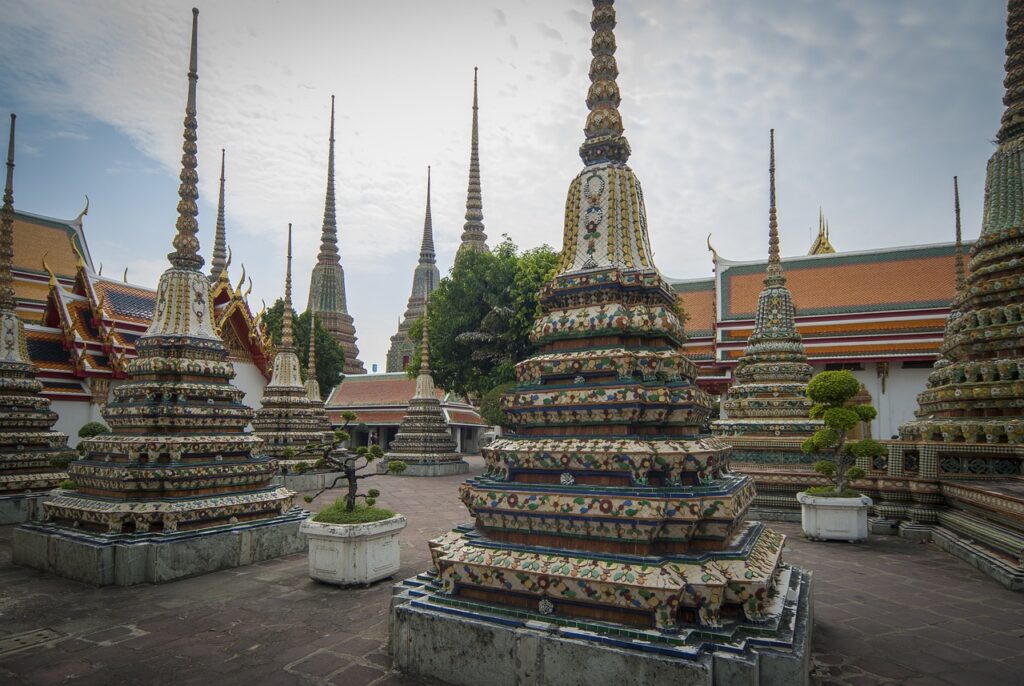Thailand’s stunning landscapes, rich culture, and affordable lifestyle have long made it a dream destination for expatriates, retirees, and savvy foreign investors. However, while the allure of owning property in this tropical paradise is strong, navigating the process of purchasing land in Thailand comes with a set of unique challenges. Unlike condominiums, where foreigners are allowed ownership under specific conditions, owning land directly is more complex due to strict legal restrictions aimed at protecting Thai resources and heritage.

But don’t be discouraged. This article will guide you through the restrictions on land ownership for foreigners in Thailand, exploring legal avenues such as long-term leases, Thai company ownership, and BOI-promoted projects. With careful planning and the right legal advice, foreign buyers can find practical solutions to acquire rights over land in Thailand and enjoy the beauty of living in this tropical haven.
Why Foreigners Can’t Directly Own Land in Thailand
For foreigners, the idea of owning land in Thailand—whether to build a home, invest, or start a business—may seem like a great opportunity. However, Thai law, specifically the Land Code Act of 1954, prohibits foreign nationals from directly owning land. This law was created with the intent to protect Thailand’s natural resources and to ensure that its land remains under Thai control. It plays a crucial role in preserving the country’s economy, culture, and heritage, preventing foreign dominance over land ownership.
The main reason behind this restriction is the preservation of sovereignty. The Thai government, aware of the potential risks of foreign investment in land (such as real estate speculation or excessive foreign influence), introduced these restrictions to maintain control over Thailand’s most valuable resource—its land. By keeping land ownership in the hands of Thai nationals, the government ensures that future generations of Thais continue to benefit from the country’s natural wealth.
While foreign nationals are prohibited from directly owning land, condominium ownership is a notable exception. Foreigners can legally own up to 49% of the units in a single condo development, making it an appealing option for many expatriates and investors. This ownership model allows foreigners to enjoy property ownership while adhering to Thai laws. However, the rules around land ownership remain much stricter.
The primary concern of the Thai government is to avoid scenarios where foreign buyers drive up property prices or potentially control significant portions of land. This could jeopardize national security and lead to the exploitation of local resources. Therefore, laws like the Land Code Act help safeguard Thailand’s land from foreign speculation and maintain its control within the Thai populace.
However, it’s important to note that while direct ownership of land is not possible for foreigners, several legal alternatives exist. Foreigners can still acquire rights to use, manage, or lease land under specific conditions, ensuring that they can still enjoy the benefits of Thailand’s property market. Methods such as long-term leasing, forming a Thai company, or investing in BOI-approved projects provide legal avenues for foreign nationals to gain access to land without violating Thai laws.
By understanding the legal framework surrounding land ownership in Thailand, foreign buyers can navigate the restrictions while still finding ways to live or invest in the country. With proper legal advice and adherence to Thai property laws, owning property in Thailand becomes a viable and rewarding experience.
Legal Avenues for Foreigners to Acquire Land in Thailand
Although foreign nationals cannot directly own land in Thailand, there are a few common strategies that they can pursue legally. Each of these options allows foreigners to access and use land, providing pathways for both personal and investment purposes.

Long-Term Leases
One of the most viable and straightforward options for foreign buyers is the use of a long-term lease. A foreigner can lease land for up to 30 years, and in many cases, the lease can be renewed for an additional 30-year period. This method grants the foreigner extensive rights to use the land, whether for residential or commercial purposes, without transferring ownership.
- A lease must be registered with the Land Department to be legally valid and enforceable, which provides both parties with legal protection.
- While the foreigner does not own the land, this method offers them control and security over the property for an extended period, making it an attractive solution for those looking to reside or invest in Thailand long-term.
Company Ownership
Another approach is to form a Thai-registered company. While foreigners cannot own land outright, a company that is legally established in Thailand can. In this scenario, the foreign national owns up to 49% of the shares in the company, with Thai nationals owning at least 51%. The company, as a legal entity, can purchase and own land, which allows the foreign shareholder to effectively control the land through the company structure.
- The company must genuinely operate as a legitimate business, adhering to Thai company law.
- Nominee structures, where Thai nationals hold shares on behalf of foreigners, are strictly illegal and can lead to severe legal penalties. It is essential to seek professional legal advice before pursuing this route to ensure compliance with the law.
Investing in BOI Projects
Foreigners can also acquire land through investments in Board of Investment (BOI)-promoted projects. The BOI offers various incentives to foreign investors in industries such as technology, manufacturing, and renewable energy. For certain approved projects, foreign nationals may be granted rights to own land specifically for business purposes.
- This option typically requires a significant capital investment and approval from the BOI.
- The land ownership granted under BOI projects is usually tied to the specific nature of the investment and is meant to promote economic development in Thailand.
In conclusion, while land ownership restrictions for foreigners in Thailand are strict, there are several legal avenues available for those who wish to acquire rights over land. Each method comes with its own set of requirements and legal considerations, so it’s essential to consult with a qualified legal professional to ensure compliance with Thai law.
Using Thai Spouses to Own Land
One legal option for foreigners who wish to access land in Thailand is through marriage to a Thai national. While foreigners are prohibited from owning land directly, a Thai spouse is fully entitled to purchase and own land in their own name. In such cases, the foreign spouse can live on and use the land but must understand that they have no direct legal rights to the property.
The Thai government requires that if a foreigner’s Thai spouse purchases land, the foreign spouse must sign a declaration confirming that the funds used to buy the property exclusively belong to the Thai spouse. This document explicitly states that the foreigner relinquishes any claim to the land. It’s a legal safeguard ensuring that the land is fully owned by a Thai national, in accordance with Thai land laws.
- This method provides access to land: By purchasing land in the name of their Thai spouse, foreigners can live on and use the land without owning it directly. This is a common route for couples who wish to settle in Thailand or invest in property for residential purposes.
- Risks for the foreign spouse: While this arrangement may seem like a convenient solution, it carries significant legal risks. Since the land is fully owned by the Thai spouse, the foreigner has no rights to the property. Should the marriage end in divorce, the foreign spouse could lose access to the land, as it remains legally owned by the Thai national. This lack of legal control makes this option less secure for foreign nationals, particularly in cases where the relationship may be uncertain in the long term.
Foreigners opting for this route should ensure that they fully understand the legal implications and may wish to seek additional legal agreements to clarify asset distribution or other financial arrangements in the event of a marriage dissolution. It’s essential to consult with a legal professional to understand the inheritance rights, property laws, and ownership restrictions tied to this method. While it offers a way to access land, the lack of ownership rights makes this a less secure option for foreigners seeking long-term land stability.
Understanding Property Ownership Rules
For foreign buyers, it is critical to distinguish between owning land and owning property in Thailand, as they are subject to different legal rules. While foreign land ownership is restricted, foreigners are allowed to own buildings and structures—such as houses or villas—constructed on land they do not directly own. This distinction opens up opportunities for foreign nationals to invest in property even if they cannot legally purchase the land itself.
For example, a foreigner can legally own a villa or a house built on leased land. In such cases, the foreigner holds full ownership of the structure while the land lease grants them the right to use the land for a specified period, typically up to 30 years, with the possibility of renewal. This arrangement is commonly used by expatriates and investors who wish to own a home in Thailand without owning the land beneath it.

- Owning property without owning land: Even though the land is either leased or owned by a Thai company, the foreigner retains ownership of the building or villa itself. This legal separation between land and property is essential to understand when considering real estate investment in Thailand.
- Risks involved: One crucial point to remember is that if the land lease expires or is not renewed, the ownership of the building does not automatically entitle the foreigner to continue using the land. Once the lease ends, the land reverts to the owner, which could create significant complications for the foreigner who owns the structure. This makes it important for foreign buyers to negotiate long-term, renewable lease agreements and to be aware of the legal terms that govern their use of the land.
Foreigners should conduct thorough due diligence and secure legal advice when entering into property agreements. It’s also important to note that building ownership does not protect against lease expiration, so having clear agreements on land use is critical for long-term property stability in Thailand.
Practical Considerations for Foreign Buyers
For foreign nationals looking to purchase property or lease land in Thailand, there are several important legal and financial factors to consider. Navigating the Thai real estate market can be complex, and it’s crucial to be fully informed and protected before entering into any agreements. Below are key practical considerations every foreign buyer should keep in mind to avoid pitfalls and ensure a smooth process.
Legal Representation
One of the most critical steps for foreign buyers is securing professional legal representation. It’s essential to consult with a qualified Thai lawyer who specializes in property law to guide you through the intricacies of land ownership restrictions and ensure all contracts are legally binding. Thai real estate laws can be intricate, particularly when dealing with land leases, company ownership structures, or agreements involving Thai spouses.
- Your lawyer will be instrumental in ensuring that all agreements are transparent and comply with Thai legal requirements, protecting you from potential scams or disputes down the line.
- Hiring a lawyer also ensures that your lease, purchase, or investment contract is properly registered with the relevant authorities, such as the Land Department, adding a layer of security to your investment.
Due Diligence
Conducting thorough due diligence is another essential step in the property acquisition process. Foreign buyers must verify the legal status of the land, its ownership history, and ensure that there are no disputes or liens against the property.
- It’s critical to confirm that the seller has the legal right to sell the land or that the lease is legitimate and transferable.
- Buyers should also check for any zoning restrictions that could affect the intended use of the land, such as limits on residential, commercial, or agricultural use. Your lawyer can assist in obtaining these records and ensure there are no surprises later on.
Costs
Foreign buyers should also be mindful of the various costs associated with purchasing property or leasing land in Thailand. These include transfer fees, lease registration fees, taxes, and potential maintenance fees, all of which must be factored into your overall budget.
- Transfer fees are typically 2% of the appraised value of the property and must be paid when the ownership or lease is registered with the Land Department.
- Lease registration fees amount to 1% of the total lease amount for the entire lease term, and both buyer and seller often negotiate how these fees will be split.
- Taxes such as withholding tax, business tax, or stamp duty may also apply, depending on the specific transaction. Consulting with a lawyer or financial advisor ensures that these costs are accounted for early in the process, preventing unexpected financial burdens.
By being fully aware of the practical and legal considerations of buying property in Thailand, foreign buyers can mitigate risks, secure their investment, and enjoy the many benefits of owning property in this beautiful country. Always seek expert advice and approach every step with caution to protect your interests.

Conclusion
While the restrictions on land ownership for foreigners in Thailand can seem daunting at first, there are viable and legal pathways that allow foreigners to access and enjoy property in this beautiful country. Whether through long-term leases, forming a Thai company, or investing in BOI-promoted projects, these strategies make it possible for foreign nationals to live, invest, or run businesses in Thailand while complying with local laws. The key to success lies in fully understanding these legal avenues and working closely with a qualified Thai lawyer to ensure that every step is in accordance with the country’s property laws.
By opting for a long-term lease, a foreigner can secure the use of land for up to 30 years, with an option to renew, allowing for long-term stability and residence. If more control over land is desired, setting up a Thai company—with the foreigner owning up to 49%—can provide another solution, but it comes with specific legal responsibilities that must be respected to avoid issues with Thai authorities. For those with significant capital, investing in BOI-promoted projects can offer land ownership rights for business purposes, provided the investment aligns with Thailand’s development goals.
It’s essential to approach these options with caution and to rely on expert legal advice to ensure full compliance with Thai regulations. Each method comes with its own set of legal requirements and risks, but with careful planning and due diligence, foreign buyers can safeguard their investment and enjoy the benefits of owning property in Thailand without fear of legal repercussions. Properly navigating these legal frameworks not only protects your interests but also opens the door to enjoying the rewards of living in a country known for its rich culture, stunning landscapes, and vibrant lifestyle.
In the end, the opportunity to invest in property in Thailand—whether through leasing land, owning structures, or benefiting from a BOI investment—is an exciting and achievable goal, but it must be done with respect to Thai law. With the right approach, foreign nationals can enjoy all that Thailand has to offer, from its tropical climate and beautiful landscapes to its thriving economy and warm community.
10 FAQs on Land Ownership for Foreigners in Thailand
No, foreigners cannot directly purchase land in Thailand, but they can lease land or invest in a company that owns land.
Foreigners can opt for a long-term lease, establish a Thai company, or invest in BOI-approved projects.
Foreigners can lease land for up to 30 years, with the option to renew for another 30 years.
Yes, foreigners can own buildings or structures, such as houses, but not the land on which they are built.
A long-term lease allows foreigners to use and occupy land for an extended period, typically 30 years, without owning it.
No, the land is owned by the Thai spouse, and the foreigner must declare that the funds used for purchase belong solely to the spouse.
Setting up a company with nominee shareholders is illegal in Thailand and can lead to penalties.
Yes, under the BOI, foreign investors may be allowed to own land for certain business purposes.
Foreigners can inherit land, but they must sell it within a year, as they cannot legally own it.
Costs include registration fees, taxes, and legal fees. These vary depending on the property and location.
